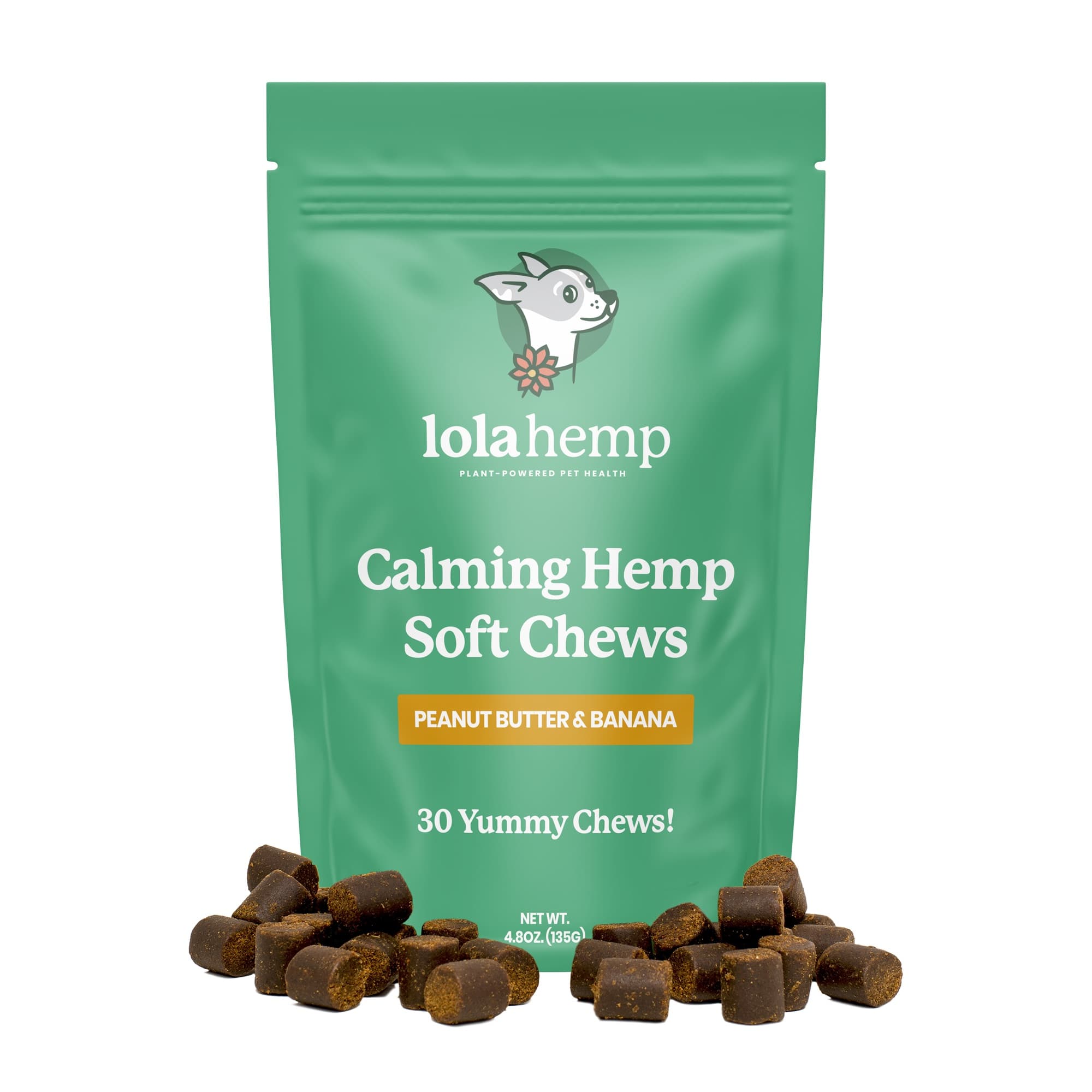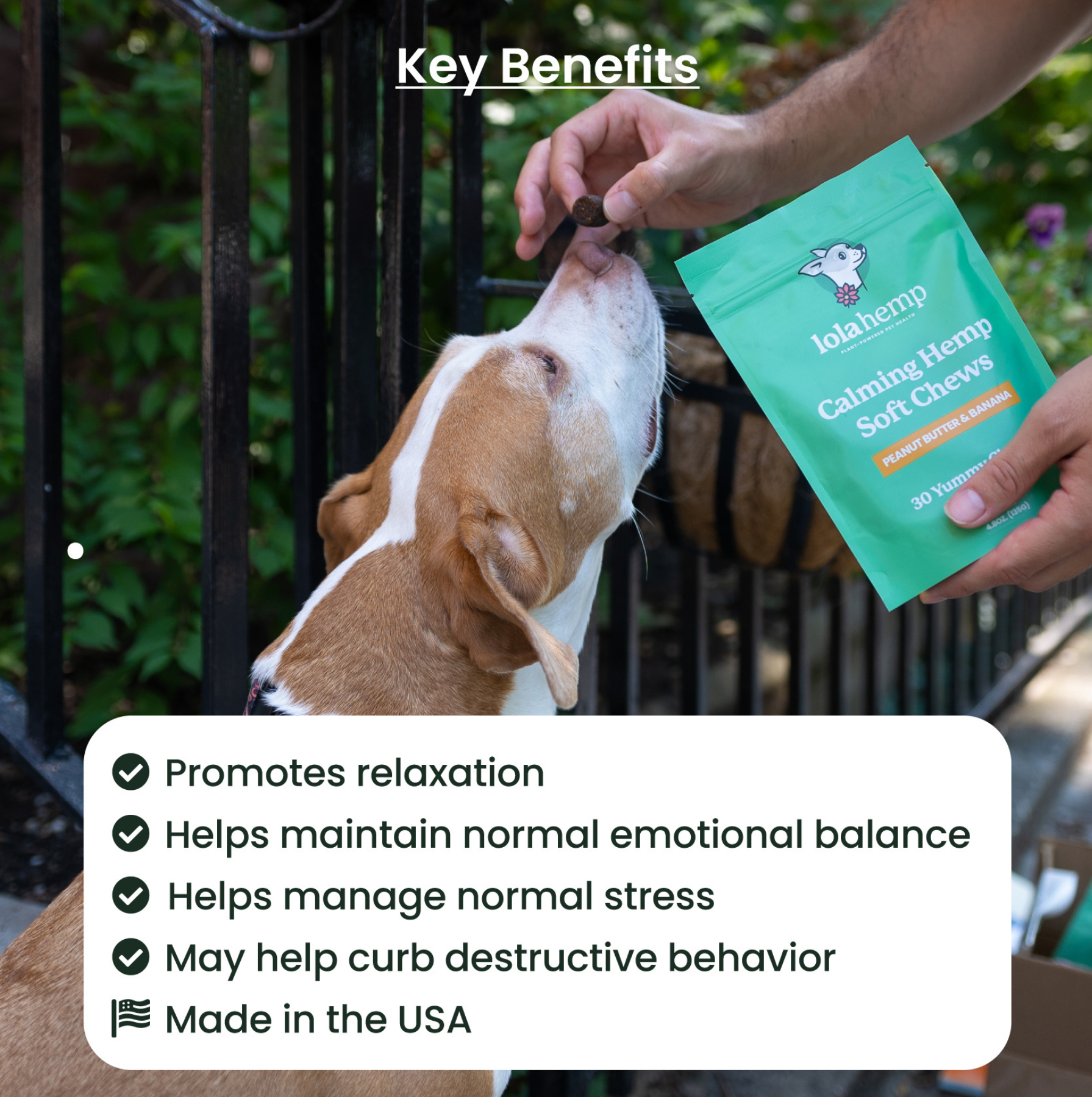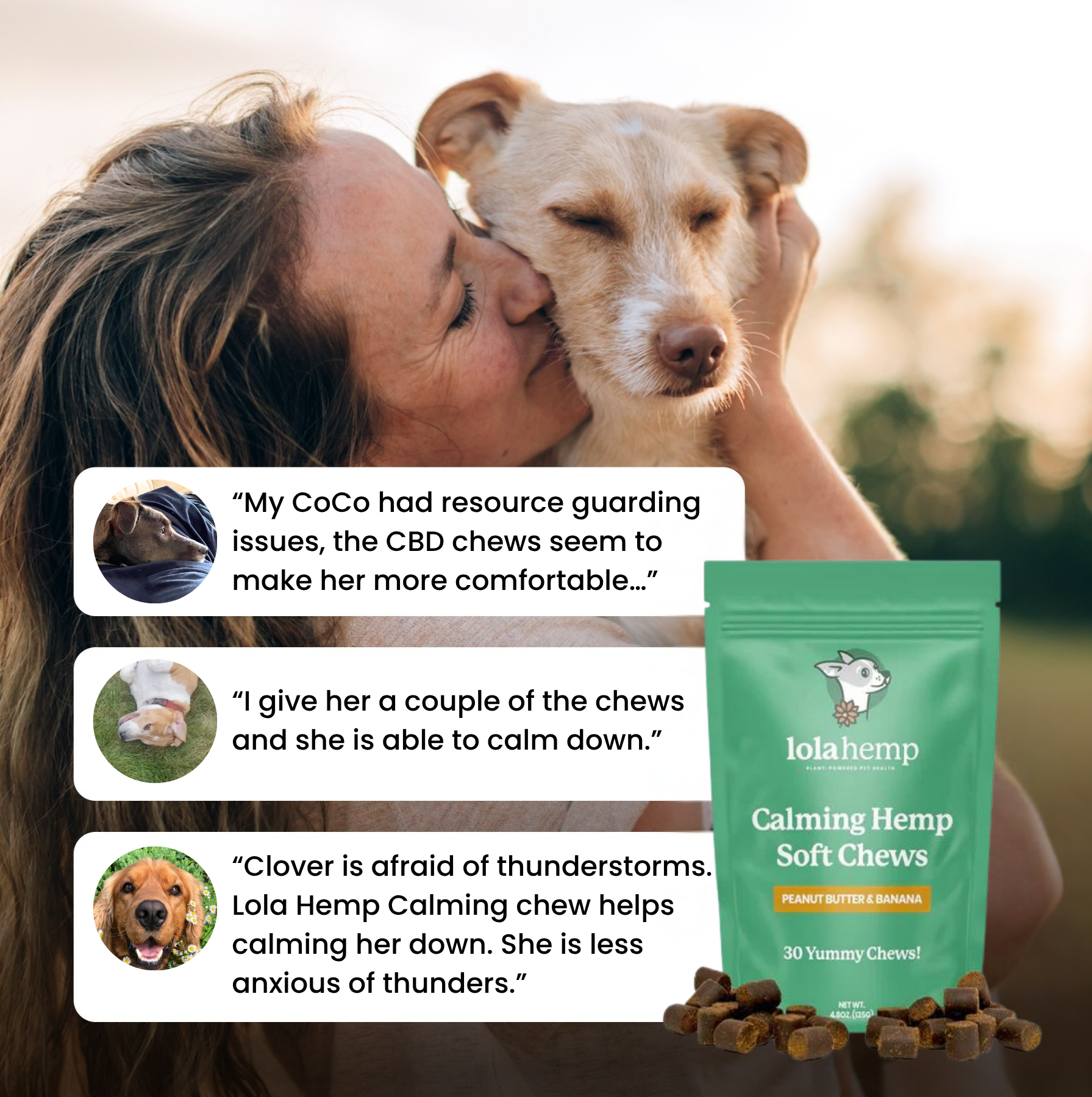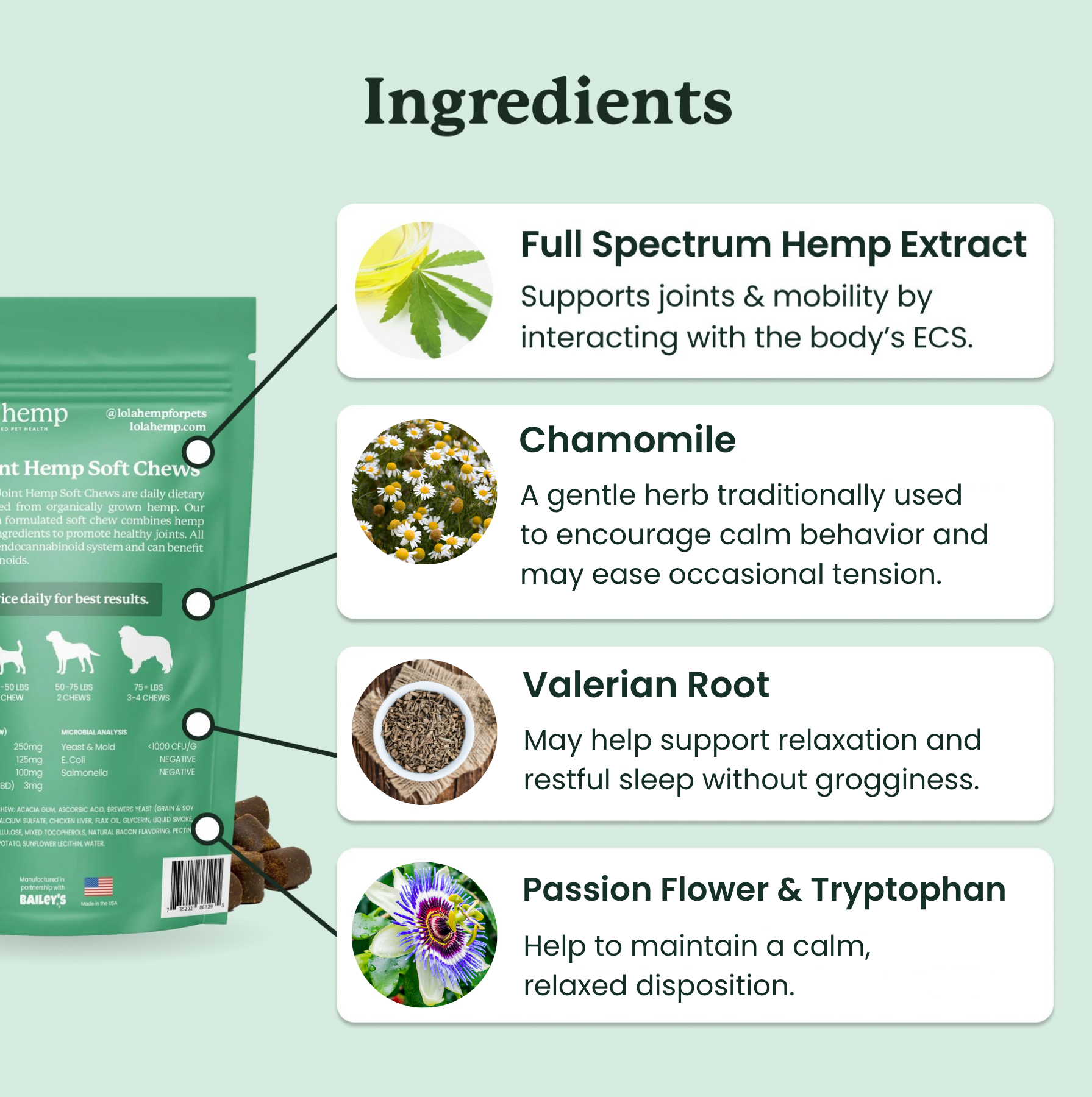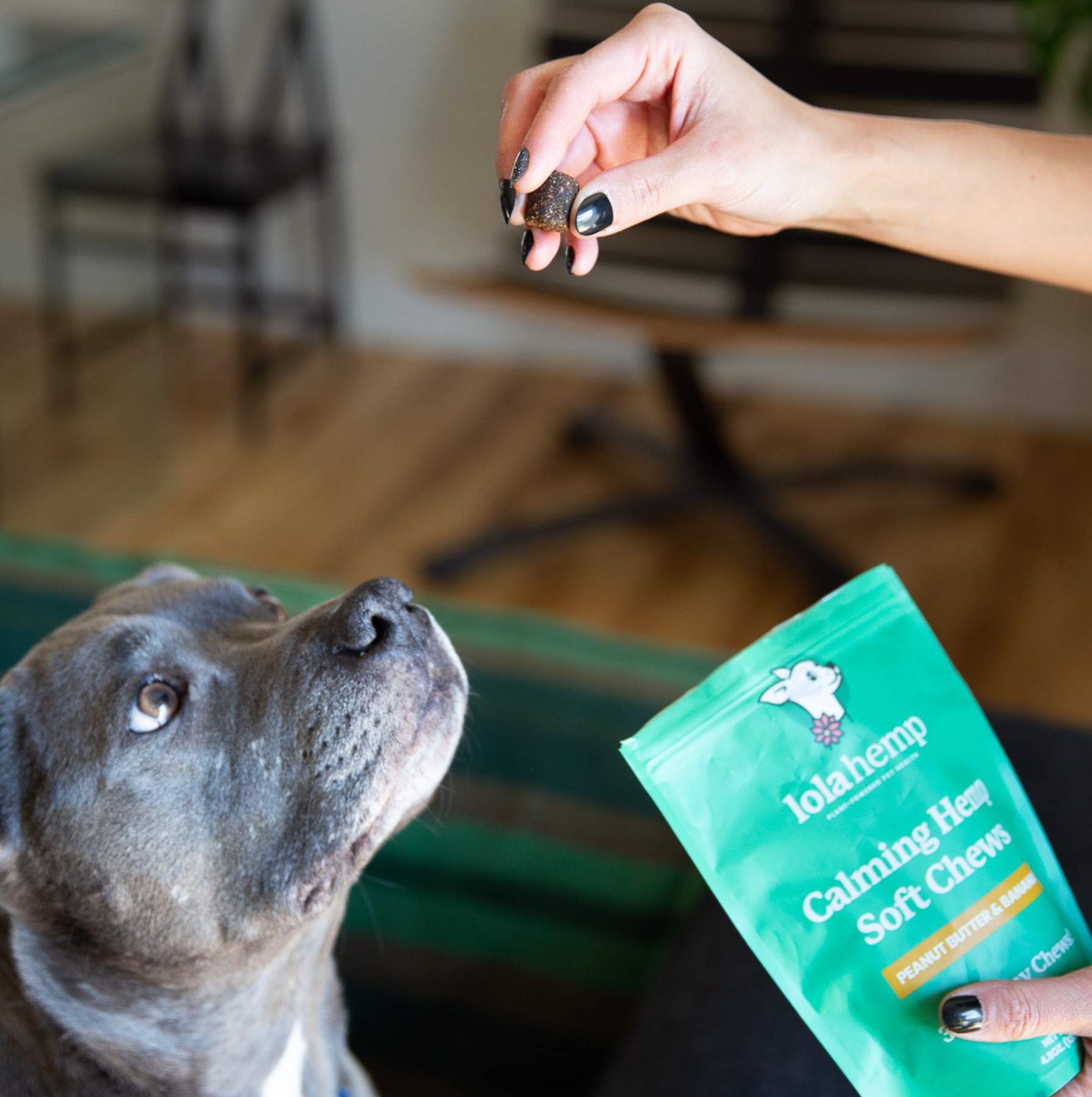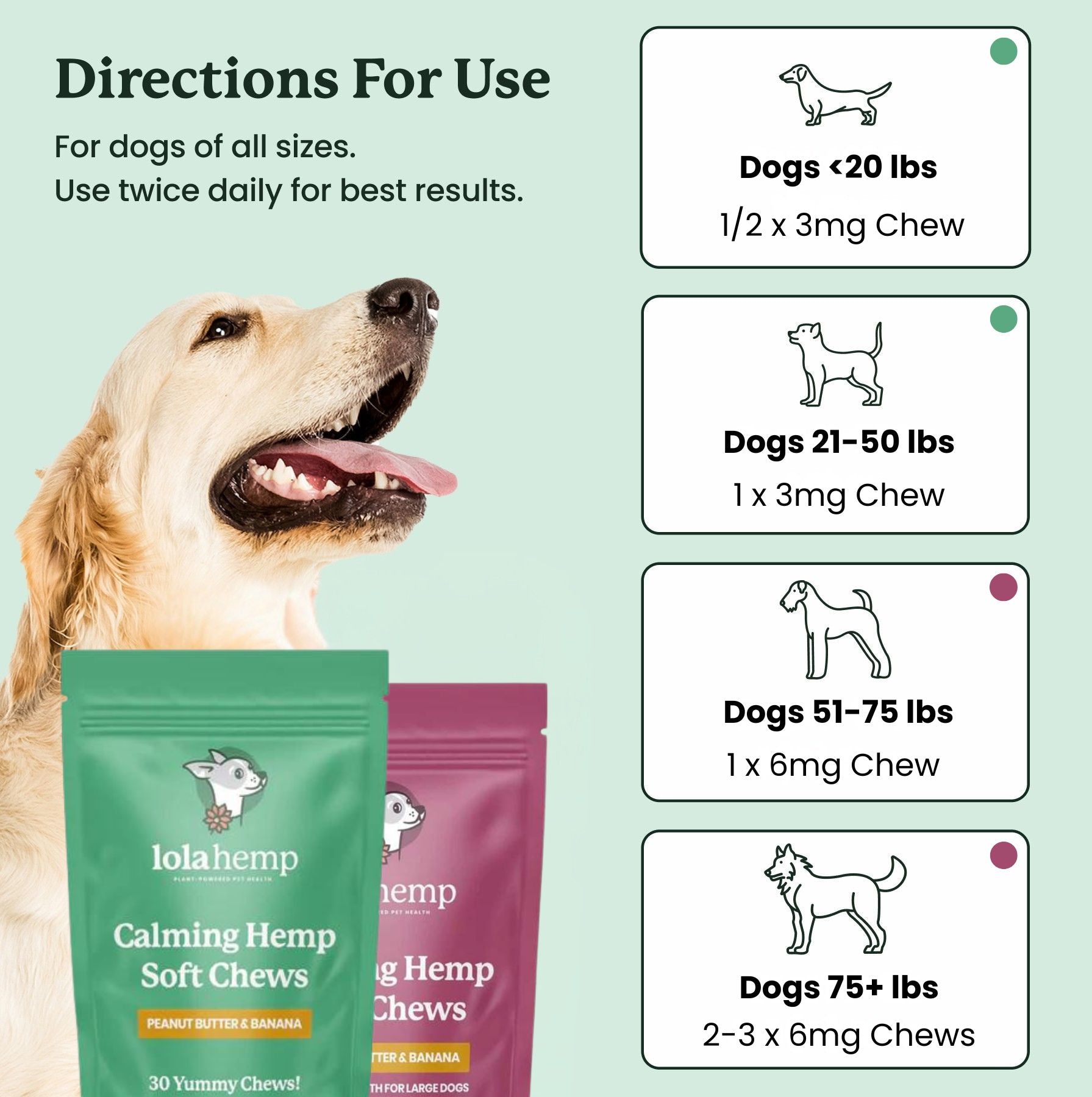Passionflower could be an excellent way to support your dog's sense of calm naturally. This article covers everything you need to know about using this emerging ingredient to support your dog's emotional health. You can also find passionflower in some CBD supplements for dogs with emotional challenges, and these have been very effective for thousands of dog owners.
Let's get started.
What Is the Use of Passionflower for Dogs?
Passionflower (Passiflora incarnata) is a plant recognized for its calming properties, especially in managing anxiety. Its benefits for dogs are primarily seen in alleviating stress, such as separation anxiety. Passionflower influences the nervous system by boosting levels of gamma-aminobutyric acid (GABA), a neurotransmitter that helps regulate brain activity and induces relaxation. This makes it an appealing natural option for promoting calmness in anxious dogs.

Is Passionflower a Safe Option for Dogs?
Passionflower is generally considered safe for dogs when used in moderation, particularly in products formulated for pets. While many pet owners report positive results, such as calmer behavior in anxious dogs, it's important to note that formal scientific studies on its effects are limited. Passionflower is commonly used to manage anxiety, but, like any supplement or herb, it’s essential to consult your veterinarian before introducing it to your dog’s routine. This ensures proper dosage and avoids any potential interactions with other medications or health conditions.
Can Passionflower Calm Your Dog Naturally?
Passionflower is known for its ability to help promote relaxation in dogs, which may be beneficial during stressful events like changes in their environment or when left alone. It works by supporting the nervous system through its calming compounds, such as GABA. While passionflower is often explored as a natural solution for managing stress, it's important to check with a veterinarian to ensure it's the right option for your dog’s specific needs.
The Risks & Cautions of Using Passionflower for Your Dog
Passionflower can interact with certain medications or supplements, so it’s crucial to discuss its use with your veterinarian to ensure it’s safe for your dog. While it’s generally considered safe, some dogs may experience mild side effects, such as dizziness or digestive upset. These reactions are rare but should be monitored closely. If any adverse effects occur, discontinue use and consult your veterinarian to determine the best course of action for your pet.

Conclusion
Before introducing passionflower into your dog's routine, it’s important to consult your veterinarian. They can offer guidance on proper dosage and assess whether it’s a safe, suitable option based on your dog’s individual health needs and medical history. By discussing your pet’s specific situation with your vet, you can ensure their well-being while exploring natural remedies like passionflower.
Passionflower for Dogs: Frequently Asked Questions
Is passionflower safe for dogs?
Passionflower is generally safe for dogs when used moderately and under veterinary guidance.
Can passionflower help calm anxious dogs?
Yes, passionflower may help promote relaxation and support emotional balance in stressed or anxious dogs.
Are there side effects of passionflower for dogs?
Some dogs may experience mild side effects such as dizziness or digestive upset, though these are uncommon.
Can passionflower interact with other medications?
Yes, passionflower may interact with certain medications, so a veterinarian should be consulted before use.
How does passionflower help dogs relax?
Passionflower supports the nervous system by influencing GABA levels, which may help regulate stress and promote calmness.

